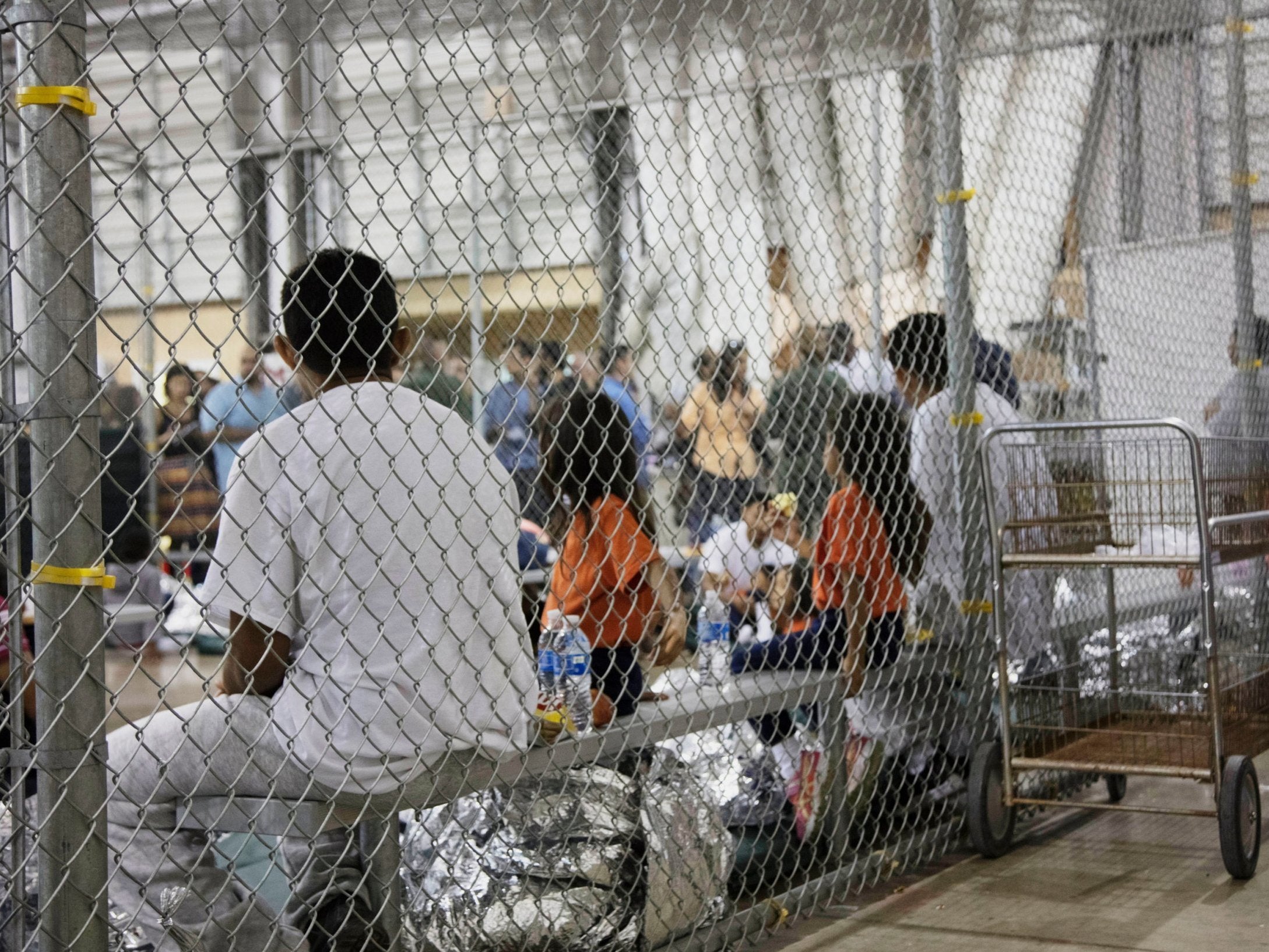US border crisis: ICE officials force-feeding immigrants on hunger strike in Texas detention centre
The practice of force-feeding is considered to be "cruel, inhuman and degrading" by the UN Office for Human Rights

Your support helps us to tell the story
From reproductive rights to climate change to Big Tech, The Independent is on the ground when the story is developing. Whether it's investigating the financials of Elon Musk's pro-Trump PAC or producing our latest documentary, 'The A Word', which shines a light on the American women fighting for reproductive rights, we know how important it is to parse out the facts from the messaging.
At such a critical moment in US history, we need reporters on the ground. Your donation allows us to keep sending journalists to speak to both sides of the story.
The Independent is trusted by Americans across the entire political spectrum. And unlike many other quality news outlets, we choose not to lock Americans out of our reporting and analysis with paywalls. We believe quality journalism should be available to everyone, paid for by those who can afford it.
Your support makes all the difference.US Immigration and Customs Enforcement (ICE) officials are force-feeding migrants who are on hunger strike at a detention centre in El Paso, Texas.
ICE officials have been inserting plastic tubes up the nasal cavities of four migrant detainees, and say the method was authorised by a federal judge this month. Family members of migrants say the force-feeding is causing severe nosebleeds and vomiting.
Force-feeding is when a lubricated tube is pushed through the nostril until it reaches the throat, so that liquid food can be pumped into the stomach. The United Nations Office of Human Rights has described force-feeding as a “cruel, inhuman, and degrading” practice, and others. The World Medical Association holds force-feeding as an unethical practice. Some human rights groups consider force-feeding to be a form of physical torture.
"Forced feeding is never ethically acceptable," the World Medical Association said in its declaration on hunger strikers in 1991. "Even if intended to benefit [the detainee], feeding accompanied by threats, coercion, force or use of physical restraints is a form of inhuman and degrading treatment."
The migrants are on a hunger strike to protest the alleged abusive conditions at the El Paso Processing Centre. The Associated Press reported that the detainees—many of whom are from India and Cuba—went on a hunger strike to protest against guards who verbally abuse and threaten them.
The migrants are also protesting the duration of their detention while they wait for legal proceedings.
In addition to the four detainees in El Paso, four other men are participating in a hunger strike in Miami, San Diego, San Francisco and Phoenix, officials say.
A spokesperson for ICE told BBC that “hunger strike protocols” were triggered after detainees missed their ninth meal in a row, and that a total of 11 detainees were on hunger strike in El Paso.
"Of these 11, four are currently being hydrated and fed non-consensually," the ICE spokesperson said.
ICE officials claim the force-feeding was in the best interest of the migrants’ health and safety since not eating food for a long period of time could lead to long-term physical and mental conditions.
Join our commenting forum
Join thought-provoking conversations, follow other Independent readers and see their replies
Comments